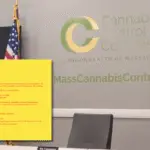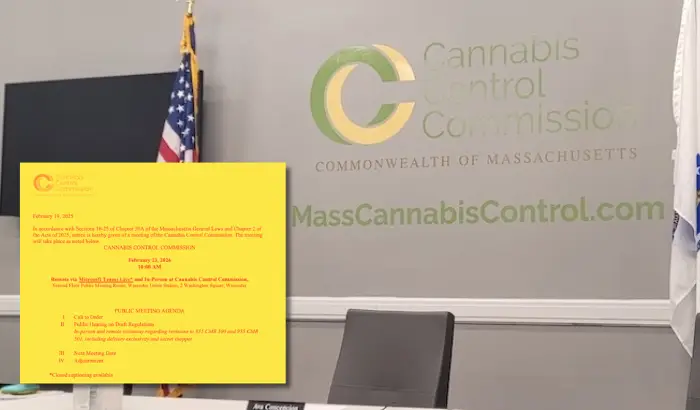
“Just from my preliminary review, I have not seen a single compliant HCA.”
The Cannabis Control Commission is a little more than halfway through its review of all Host Community Agreements (HCAs) throughout the state, and there’s already a persistent theme among the documents: improper municipal cash demands.
CCC Director of Licensing Kyle Potvin reported some of these findings during last Thursday’s meeting of the CCC. He noted that his staff had impugned most of the agreements, and that he had only personally reviewed some of them—but that’s enough for him to notice patterns.
“Just from my preliminary review, I have not seen a single compliant HCA,” Potvin said.
Last year, the commission adopted new regulatory guidelines for HCAs, while also taking on the responsibility of overseeing those agreements. For years, companies have complained of abuse and even extortion at the hands of city hall, but now adjustments have been put in place to prevent towns from taking advantage of cannabis businesses in their fiefdoms.
With the market maturing, every month, the CCC renews dozens of cannabis operator licenses. Now that HCA review is a part of that process, the agency’s licensing department has been working on inserting the new requirements into its standard workload.
“We’re getting our teams acclimated, so that when we review these HCAs, we’re doing it consistently and not arbitrarily,” Potvin said.
Potvin noted that as of last week’s meeting, the CCC had completed its review of 365 HCAs, which represents 51.3% of the total. Reviews were currently in progress for 49 HCAs, or 13.4%, leaving 298 HCAs (41.9%) whose reviews had not yet started.
The licensing director also urged operators and municipalities that may be seeking a license renewal to take another look at how their HCA is structured, especially in terms of financial obligations.
“I’m seeing community impact fees that are tied to a percentage of total sales,” he said. “There are annual payments that are just stated, payment schedules that are just stated within the contract. … I would focus on the HCAs when it comes to any types of payments or any terms and conditions that relate to money.”
HCAs have been a contentious topic of conversation among Massachusetts operators for several years, going as far back as 2019 when former Fall River Mayor Jasiel Correia was caught soliciting bribes from cannabis operators who wanted to open up shop in that city. As initially interpreted by greedy towns and cities, the agreements enabled municipalities to require payments from cannabis operators based on the perceived cost of hosting the company. That changed last year after state cannabis laws were amended to require those host communities to provide evidence that backs up their claims to so-called impact fees.
Recently, Caroline’s Cannabis, which was one of the first adult-use dispensaries to open in the state, sued the Town of Uxbridge over unjustified host community fees. That case ended earlier this year with the host refunding nearly $1.2 million, which is about 80% of the payments made. Other companies are also taking their cases to court, with some cities and towns digging in their heels.
At their meeting last week, commissioners also introduced a new document outlining Guidance on Host Community Agreements. The 14-page packet includes a model HCA that is in line with the new rules, and that licensees and towns can use in lieu of drafting an agreement from scratch.























